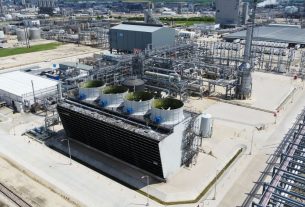United Kingdom – The UK government has granted £220,000 to the University of Aberdeen’s School of Engineering to support a project that aims to develop a new method of producing hydrogen from organic waste as part of the energy transition.
The funding, provided by the Department of Business, Energy and Industrial Strategy’s (BEIS) Net Zero Innovation Portfolio (NZIP), will support research that could result in the commercial conversion of organic material from food waste, manure, waste waters, and other biodegradable wastes to hydrogen for use in homes and businesses.
Reaction stages
The project, which is being directed by Professor Davide Dionisi from the School of Engineering, enlists numerous esteemed academics, including those from the university’s Department of Chemistry. The Universities of Verona in Italy and Cranfield University in England are also members of the group. The project will maximize the conversion of organic matter into hydrogen through a series of biological, thermochemical, and electrochemical steps.
According to Professor Dionisi, the project will use a novel method that includes four main stages of reaction: dark fermentation, anaerobic digestion, plasma reforming, and steam gasification. To maximize the hydrogen yield from organic waste, the researchers plan to scale up and integrate these four stages.




